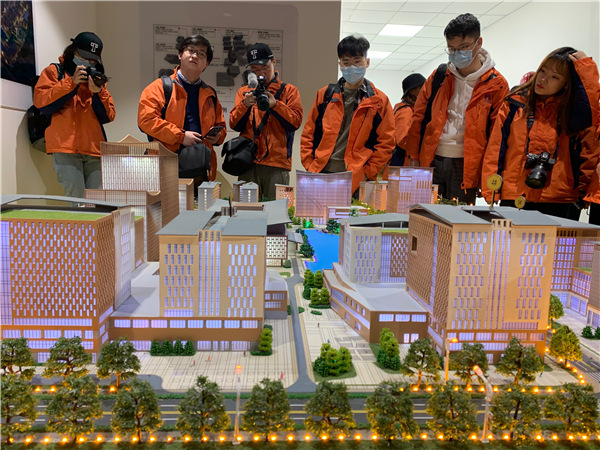 |
|
A group of graduate students from Tsinghua University's School of Journalism and Communication visit the construction site of business and service center in Rongdong district, Xiong'an. [Photo by Mei Jia/China Daily] |
It took time to complete the new area's careful plan and scientific design for every inch of the land. The initial announcement was in April 2017, and Xiong'an has embarked on a new phrase of construction, Bian says.
The ride to Rongdong district, where residential buildings and a business service center are nearing completion, was a bumpy experience. Roads to the construction sites were paved with prefabricated planks for heavy trucks-a convenient idea for temporary assembly and easy removal that saved time and energy.
The traffic is heavy and sometimes jammed, yet it flows in order. Mobile internet signals are occasionally unstable because new 5G stations are just now being built.
A group of graduate students, aged 22 to 24, from Tsinghua University's School of Journalism and Communication visited Xiong'an earlier this month. On the construction sites, they found AI goggles for safe inspections, and smart apps for mobile phones or computers connected with cameras to verify the height and position of tower cranes.
Guo Jinsong, a group leader of a construction team working on the business service center, tells the students there are smart dust-control devices on the construction sites that will initiate spray systems to reduce dispersion.
Xiong'an might be one of the first cities in the world to be planned and built from scratch with high-tech intelligence.
"Smart and green are in the city's genes. So we'll finally have a city on the ground, underground and in the cloud," Bian says, adding that every pillar can be traced with an IP address. Likewise, every tree in Xiulin forest has a QR code to provide detailed information on its species origin, name, growth characteristics, gardener and more.